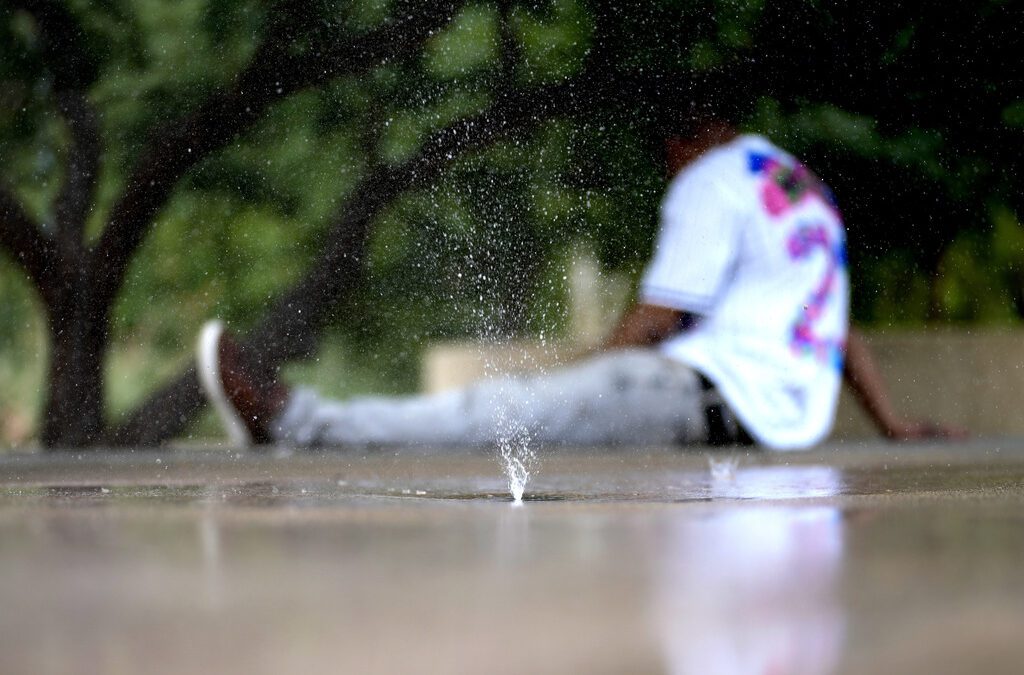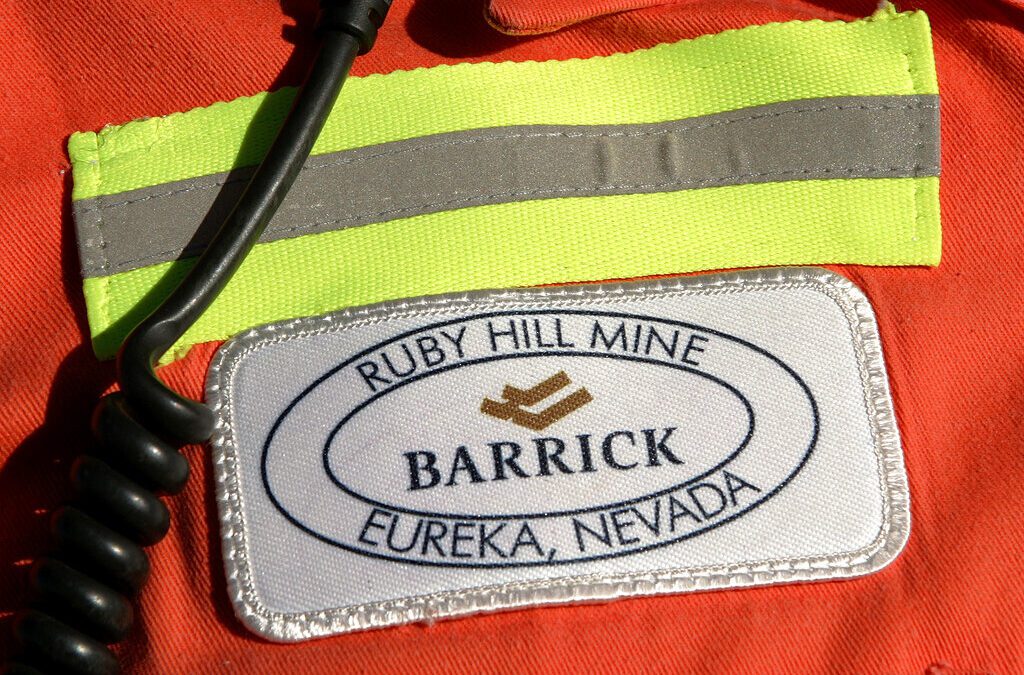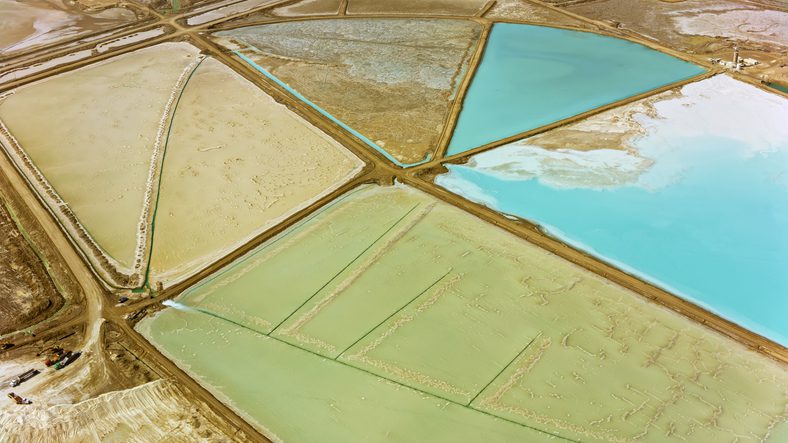
FILE - Nevada Republican US Senate candidate Sam Brown speaks to media after voting at Reno High School in Reno, Nev., June 14, 2022. (AP Photo/Tom R. Smedes)
Brown once touted the economic potential of establishing a dumping site for the nation’s nuclear waste 100 miles from Las Vegas. Now, conservatives want to advance the proposal if Trump retakes the White House.
Local officials and advocates are sounding the alarm bell over a proposal to revive a decades-old plan to establish a repository for the nation’s spent nuclear waste at a site roughly 100 miles from Las Vegas, after comments from the leading candidate in Nevada’s Republican US Senate primary supporting the project resurfaced.
While running as a longshot candidate in the 2022 GOP primary for Senate, retired US Army Capt. Sam Brown said failure to open the proposed Yucca Mountain facility would be an “incredible loss of revenue for our state,” according to a report Tuesday from the Los Angeles Times.
“If we don’t act soon, other states … are assessing whether or not they can essentially steal that opportunity from us,” Brown reportedly told the Southern Hill Republican Women during a luncheon at a golf club in Henderson.
“We all know that Nevada could use another great source of revenue,” Brown continued, acknowledging the state’s dependence on tourism. “And it sure would be a shame if we didn’t monopolize on that and become a central hub of new development that we can do at Yucca.”
Yucca Mountain sits adjacent to the Nevada Test and Training Range, a 4,500-square-mile swath of land that is now Nellis Air Force Base. Since the 1980s, the federal government has pushed to make Yucca Mountain the nation’s sole depository for spent nuclear waste.
But since those efforts to develop the project began, Republicans and Democratic governors, state legislators, and federal lawmakers have remained united in opposing Yucca Mountain over fears that any potential catastrophe could ruin Las Vegas’ reputation as a travel destination.
Within hours of the LA Times report’s publication, the campaign for US Sen. Jacky Rosen, who Brown would face in November if he wins the GOP primary, said the comments by the Texas transplant “underscores how little he understands the needs of our state.”
“For decades, Nevadans across party lines have been clear that we will not allow our state to become the dumping ground for the rest of the nation’s nuclear waste,” Rosen’s statement read.
At a news conference held by the Nevada State Democratic Party on Thursday, state officials and environmentalists echoed those remarks.
MORE: Bill aims to help Army Corps fight drought in Nevada
“Not only is Brown willing to ignore the experts and the majority of voters who have opposed this facility,” Assemblyman Howard Watts (D-Las Vegas) said. “He is ignoring the Democrats and Republicans in the legislature, Democratic and Republican governors, elected officials at every level across the state of Nevada who have said time and time again this is not a dumping ground.”
Brown told The Nevadan in a statement, “I am not strictly committed to opening Yucca Mountain at this time,” and added he will consider all “thoroughly vetted” future proposals with the safety of Nevadans a top priority.
Kristy Wilkinson, communications director for Brown’s campaign, further told The Nevadan he will vet “every safe opportunity” that will bring further jobs and economic investment into the state.
“Sam’s first priority will always be the safety and security of Nevadans, our water and our environment,” Wilkinson said. “If a proposal isn’t explicitly proven to be demonstrably safe, he will not support it.”
Former Clark County Commission Chairman Rory Reid at Thursday’s event called Brown’s pro-business argument “naive.” Reid’s late father, former longtime US Sen. Harry Reid, is widely credited with helping stall the program during his decades-long tenure in Washington.
“I’m here to defend my father’s legacy,” Reid said. “Mr. Brown’s position ignores the collective wisdom of almost every other Nevadan that has ever been elected to serve this state in any capacity.”

FILE – In this April 13, 2006, file photo, Pete Vavricka conducts an underground train from the entrance of Yucca Mountain in Nevada. (AP Photo/Isaac Brekken)
About Yucca Mountain
Nevada’s relationship with nuclear waste and the federal government first started back in the 1950s, University of Nevada, Las Vegas professor Andy Kirk said. What’s now the Nevada Test and Training range was the test site location for a number of atomic projects, including above-ground nuclear explosions visible from the Las Vegas Strip.
Back then, Nevadans were united in embracing the nuclear age because of the success of other federal projects like the Hoover Dam.
“These big federal projects [were] a source of jobs, a source of money for the state, and also a source of prestige for the state,” Kirk said.
But in the decades after those nuclear detonations, many who worked there or lived downwind of the site reported getting a number of diseases including cancer—so much so that Congress in 1990 passed a bill to compensate individuals exposed to radiation from atomic weapons testing or uranium processing.
Federal officials in 1978 first identified Yucca Mountain as a site to act as a centralized repository for spent nuclear waste. Congress approved the Nuclear Waste Policy Act of 1982, which charged the US Department of Energy (DOE) as the agency responsible for finding and building a single site to serve as an underground disposal facility.
The legislation was amended in 1987 to direct the DOE to narrow the search for a national repository solely to Yucca Mountain. The project eventually received approval from President Ronald Reagan and was scheduled to begin taking in waste by 1998, but between years of bipartisan opposition from Nevada’s congressional delegation and legal challenges, the project remained stalled.
Kristee Watson, executive director of the environmentalist nonprofit Nevada Conservation League, said Thursday that Yucca Mountain also sits on several fault lines and that the facility could be damaged in the event of an earthquake. DOE research, however, has stated seismic and tectonic activity is too slow to significantly affect the repository.
Still, even as just a looming threat, Watson said a potential earthquake could result in waste seeping into nearby aquifers.
“Nevadans have been standing as a united front against Yucca Mountain for decades because we know how dangerous this proposal would be for the health, safety, and economic security of people across the entire state,” Watson said.
Limited progress on the project continued throughout the 1990s, but once the late Harry Reid became Senate Majority Leader after the 2006 elections, the Nevada political stalwart used his gravitas as head of the Senate to block the project’s completion.
Former President Barack Obama attempted to move away from the Yucca Mountain project starting in 2009, but other states sued to prevent the facility from closing.
In 2017, the Trump administration sought $120 million to restart licensing at Yucca Mountain—an appropriations request that was ultimately blocked by the Senate.
In 2021, Energy Secretary Jennifer Granholm told Congress that Yucca Mountain is not part of the Biden administration’s plans for nuclear waste disposal. Granholm renewed that pledge during a hearing in April after she was asked about it by Nevada US Sen. Catherine Cortez Masto, Reid’s successor. Granholm affirmed the Biden administration instead prefers selecting a site with the consent of local stakeholders.
UNLV’s Kirk said Nevada’s long relationship with the federal government and nuclear testing—and its effects—has given the state a level of expertise that others simply don’t have.
“The history of having large-scale nuclear activity in your state, far larger than anything that was ever hosted by the other 49, means that Nevada has a very unique perspective of the consequences of hosting these sorts of activities,” Kirk said.

FILE – In this July 14, 2018, file photo, a sign warns of a falling danger on the crest of Yucca Mountain during a congressional tour near Mercury, Nev.
The future of Yucca
As the Yucca Mountain project has remained in limbo over the years, officials say there is still a need, even today, to find common ground in where nuclear waste should be dumped. The US already has about 85,000 metric tons of waste in need of disposal, according to POLITICO, and a renewed push to expand nuclear energy as a means to combat climate change has ushered in new debate around where to store that waste.
Last month, House Energy and Commerce chairwoman Cathy McMorris Rodgers (R-Washington) led a hearing where some Republican lawmakers on the panel signaled support to restart Yucca Mountain. Rodgers herself lamented how her colleagues from Nevada have stifled the project.
“Opposition is not safety related or technical, it’s political,” Rodgers said at the April 10 hearing. “Opposition from states like Nevada in particular to this program has inhibited congressional appropriations and driven the executive branch to dismantle what has otherwise been a technically successful program.”
Rodgers continued: “We must continue this committee’s work to update the law and build state support for our permanent repository at Yucca Mountain.”
Though former President Donald Trump’s administration sought funding for the Yucca Mountain project, Trump in 2018 said he opposed reopening the site and claimed “I agree with the people of Nevada.”
But a proposal to restart Yucca is outlined in a master document called the Project 2025 Presidential Transition Project, which was published in 2023 by the conservative Heritage Foundation with the help of several former Trump administration officials.
The 920-page document details policy objectives in a potential second Trump presidency, including a mandate that DOE restart the Yucca Mountain licensing process, stating the site “remains a viable option for waste management.”
Finishing the licensing review would not mean Yucca Mountain would be ready to store waste, according to the document, but rather would present the information to the State of Nevada, Congress, the administration, and others to be used for further decision-making. The document also calls for DOE to identify a second possible repository site.
While some Democrats say the need for consent-based siting is critical when it comes to depositing nuclear waste, Project 2025 claims the practice “has been a way to delay any politically painful decisions about siting a permanent civilian nuclear waste facility.”
As officials try to navigate the newest chapter in the Yucca saga, consent from the public will remain an important factor to consider, Rep. Scott Peters (D-California) said at last month’s hearing.
But that also doesn’t mean Yucca Mountain won’t be a location officials will try and move forward with.
“We’ve done a lot of work to identify Yucca Mountain as a place where it [dumping] would be acceptable. It’s not going away,” Peters said. “The role of the federal government sometimes goes beyond local objections.”

Many fear help for Nevada water conservation will dry up under Trump
Despite billions from the Inflation Reduction Act going to benefit Nevada, President-elect Donald Trump and conservative fiscal hawks may pursue a...

Grant from Biden infrastructure law to help install 185 EV charges around Las Vegas valley
A $3.2 million grant from the US Department of Transportation will help fund and install electric vehicle charging stations in primarily...

Almost 500 people have died from extreme heat in Las Vegas in 2024, officials say
Factors relating to extreme heat accounted for 491 deaths and more than 3,500 emergency room visits, according to Clark County officials, as Las...

Nevada gold mining venture selected for $95M solar project
After being awarded a federal grant to help decarbonize the mining industry, Nevada Gold Mines hopes to build two on-site solar panel and battery...

Opinion: This Christmas, I want more renewable energy to help address hardworking Nevadans’ economic challenges
As a full-time college student balancing part-time work and rising living costs, utility expenses have become an unsustainable burden, especially...

Opinion: The Lithium Rush Is Repeating Past Mistakes. Will We Ever Learn?
Amid the excitement around the shift to clean energy, a critical issue remains overlooked: community engagement in resource extraction. As the...




